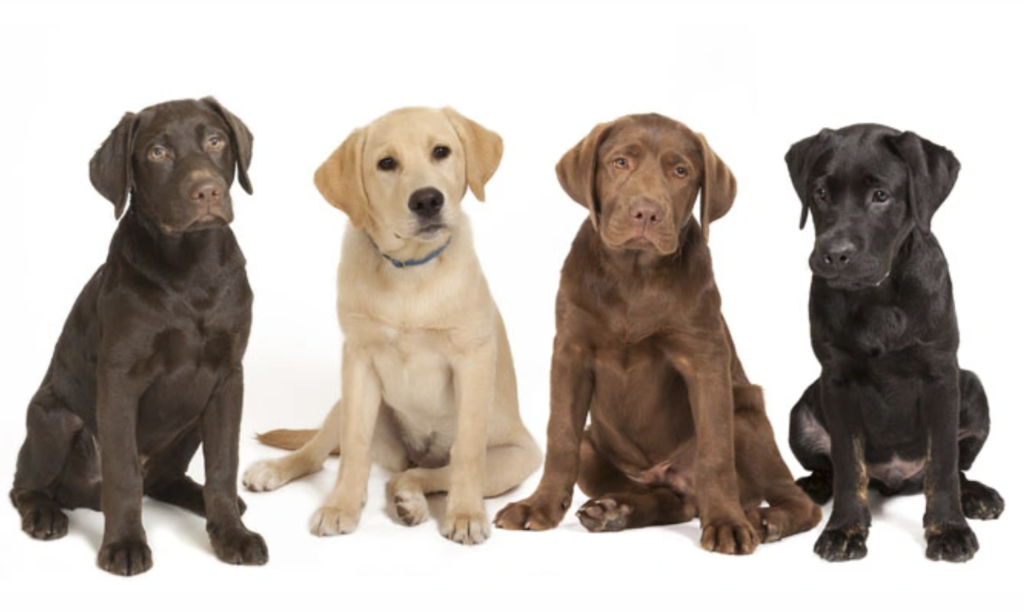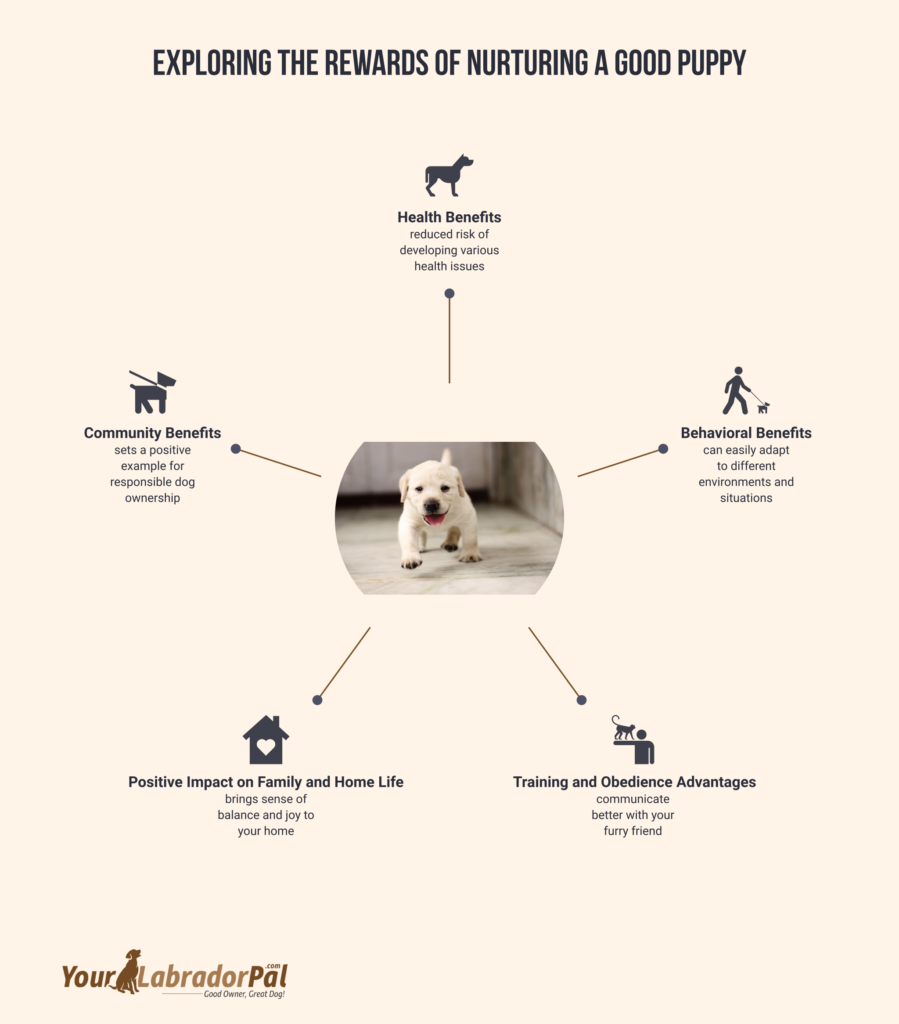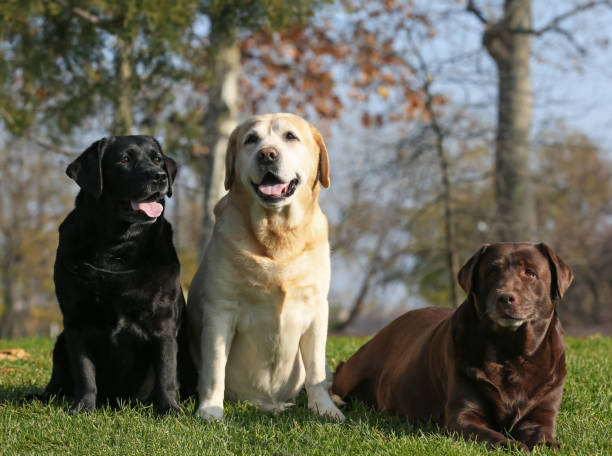How To Identify A Good Labrador Puppy
Finding the perfect furry companion can be an exciting and rewarding experience, especially when bringing home a lovable Labrador retriever. But before you fall head over heels for those big puppy eyes, you must know how to identify a good Labrador puppy. After all, selecting the right pup ensures a lifetime of happy memories together and safeguards against potential health and behavioral issues down the line.
We all want our four-legged friends to be healthy, happy, and well-behaved, but the risks of choosing an unhealthy or poorly bred-puppy can lead to heartache and frustration. From costly vet bills to challenging behavioral problems, it’s crucial to be well-informed about what to look for in your future Labrador companion.
So, let’s dive into the world of Labrador puppies together and learn how to pick the ideal pup that will become a cherished member of your family!
Labrador Retriever Puppy Facts
Labrador Retrievers are one of the most popular dog breeds in the world, and it’s easy to see why. These friendly, intelligent, loyal dogs make excellent companions for families, individuals, and even working dogs. Before bringing home a Labrador puppy, you must learn key facts about this beloved breed.
There are two main types of Labrador Retrievers: the English Labrador and the American Labrador.
The English Lab, also known as “show” or “bench” Labradors, have a stockier build, broader head, and shorter muzzles. They are generally more laid-back and calm compared to their American counterparts.
The American Lab, also called “field” or “working” Labradors, have a leaner build, longer muzzle, and a more energetic and agile disposition. Both types make wonderful pets, but it’s essential to consider your lifestyle and preferences when choosing between the two.
The American Kennel Club (AKC) has set a breed standard for Labrador Retrievers, which outlines the ideal physical and temperamental traits. According to the AKC, a Labrador should have a strong, athletic build with a short, dense, weather-resistant coat. Their coat colors can be black, yellow, or chocolate. Labs should be friendly and outgoing, eager to please, and adaptable to various situations. They should be good with children, other animals, and strangers.
In addition to their appearance and temperament, it’s crucial to know that Labradors are prone to certain health issues, such as hip and elbow dysplasia, eye conditions like progressive retinal atrophy (PRA), and obesity.
The Benefits of Having a Healthy and Well-Behaved Lab Puppy
Every dog owner wants their pup to be healthy and well-behaved, but there are more significant benefits of having a Labrador puppy that meets breed standards.
🐕 Health Benefits
You know, one of the best things about having a healthy and well-behaved Lab pup is the amazing health benefits that come along with it. Who wouldn’t want their furry companion to live a long, happy life, right? When your Lab is in good health, they have a reduced risk of developing various health issues, ultimately leading to a longer lifespan. It’s a win-win situation for both you and your pup!
And let me tell you, another perk of having a healthy Labrador is that you’ll save money on veterinary costs. Fewer health problems mean fewer visits to the vet and less money spent on medical treatments. Plus, it’s always a relief knowing that your beloved pet is in great shape and not going through any discomfort or pain.
But wait, there’s more! A healthy purebred Lab puppy also has increased mobility and energy so that you can enjoy all physical activities together. Whether it’s going for long walks, playing fetch, or even swimming, your energetic Lab will be right by your side, ready for adventure. Just imagine all the fun memories you’ll create with your happy and active companion!
🐕 Behavioral Benefits
Think about it: when your Lab is well-adjusted and properly socialized, it can easily adapt to different environments and situations. Whether you’re moving to a new home or going on vacation, your furry friend will take it all in stride. How cool is that?
And let’s remember how much easier socializing with other dogs, pets, and people is. A purebred Labrador Retriever will be a joy to introduce to your friends, family, and even other animals. They’ll quickly become everyone’s favorite canine companion, and you’ll be so proud of how polite and friendly they are around others.
But the best part? Having a well-behaved Lab significantly reduces stress and frustration for you and your dog. There’s no need to worry about them getting into trouble, being overly aggressive, or causing damage. Instead, you can simply enjoy the wonderful bond you share and truly appreciate your amazing friendship with your Lab.
🐕 Training and Obedience Advantages
Nothing is more satisfying than seeing your Lab easily respond to your commands and cues. Their improved responsiveness means you’ll be able to communicate better with your furry friend, creating a stronger bond between the two of you. Plus, it’s so impressive to see your dog showing off their skills in front of others, right?
But here’s the real kicker – having a well-trained Lab enhances safety for everyone involved. Your dog, yourself, and even others around you will be much safer when your Lab knows how to behave appropriately in public settings. No more worrying about them jumping on strangers or bolting into traffic – your well-behaved pup will be a model citizen that everyone will admire.
🐕 Positive Impact on Family and Home Life
One of the greatest benefits is its positive impact on your family and home life. I mean, who wouldn’t want a harmonious household where everyone gets along, right? A well-behaved Lab just brings this sense of balance and joy to your home that’s simply priceless.
And speaking of priceless, let’s talk about the stronger bond that forms between your Lab and your family members. When your pup is well-behaved and healthy, it’s much easier for everyone to connect with them and develop a deep, loving relationship. It’s like your Lab becomes an inseparable part of your family, creating memories that will last a lifetime.
But wait, there’s even more! Did you know that a well-behaved and healthy Lab has the potential to become a therapy or assistance dog? That’s right; your amazing companion could go on to provide comfort and support to those in need. Labs are known for their gentle and caring nature, making them an ideal candidate for this kind of work. How incredible would it be to know that your furry friend is making a real difference in someone’s life?
🐕 Community Benefits
When your pup is a shining example of good manners and health, it sets a positive example for responsible dog ownership. People will look at your Lab and think, “Wow, that’s what a well-cared-for dog looks like!” And that’s something to be really proud of.
Another great advantage is that a well-behaved Lab reduces the likelihood of complaints from neighbors or public incidents. No one wants to be “that person” with the unruly dog that’s always causing trouble, right? With a well-mannered Lab by your side, you can enjoy peace of mind knowing that your furry friend is on their best behavior and not causing any disturbances.
But here’s my favorite part – a healthy and well-behaved Lab can get involved in community events and programs! From participating in dog sports like agility or obedience competitions to joining breed clubs and local meetups, your Lab has many opportunities to shine and make new friends. Moreover, it’s a fantastic way for you to connect with fellow dog lovers and share your passion for this amazing dog breed.
How To Identify A Good Labrador Puppy: The Ultimate Labrador Checklist
Now, to help you identify a good Labrador puppy, I’ve put together an ultimate checklist that you can use when looking for your furry friend. Here’s what to look out for:
✅ Find Reputable Breeder
The first and most important thing to do is find a reputable breeder. A responsible breeder will prioritize the health and well-being of their dogs, ensuring that they’re bred ethically and raised in a loving environment.
So, how do you find one of these amazing breeders? Start by researching online and asking for recommendations from friends or local breed clubs. Once you’ve got a list of potential breeders, don’t hesitate to ask them questions about their breeding practices, health testing, and socialization methods.
Trust me, a reputable breeder will happily answer your questions and show off their beautiful, well-cared-for Labs.
✅ Physical Characteristics
Paying attention to their physical characteristics! The ideal Labrador retriever breed standard includes traits like a strong, athletic build, a broad head, and a friendly expression. But beyond just looking for those adorable Lab features, you’ll also want to recognize physical traits that indicate good health.
For example, check out their eyes – they should be bright and clear. And don’t forget about their ears, which ought to be clean and free of any discharge or odor. Oh, and a shiny coat is another great sign of a healthy pup! These little details can give you confidence that you’re choosing a strong, happy, and healthy Lab puppy.
In addition, keep an eye out for any red flags that might indicate potential health issues. Things like lethargy, thinness, or matted fur could indicate something wrong.
✅ Behavior and Temperament
Labs are known for their friendly and easygoing nature, so you’ll want to look for signs of a well-socialized and amiable pup. Keep an eye out for that wagging tail and relaxed body language – these are great indicators that the puppy is happy and comfortable around people.
Here’s a little tip: try observing the puppy’s behavior in various settings, like around strangers or other Labrador dogs. This will give you a better idea of their overall temperament and how they might react in different situations. After all, you want an adaptable and good-natured Lab, no matter where they are or who they’re with!
But hey, don’t forget to watch out for warning signs of aggression, shyness, or excessive fearfulness. These could indicate potential behavioral issues needing more time and effort.
✅ Health Certifications and Pedigree
Health certifications from the breeder or veterinarian are crucial because they show that the puppy has been properly screened for common health issues. This means you can feel confident that your new furry friend is in tip-top shape!
Now, let’s talk about understanding the puppy’s pedigree and bloodline. By learning about their ancestry, you can assess potential health risks and decide whether that particular pup is right for you. Furthermore, knowing the history of their bloodline can give you a sense of pride in your Lab’s heritage!
Remember to research the breeder’s reputation and history of producing healthy puppies. A breeder with a solid track record is likely to provide you with a healthy, happy Lab who’ll be a wonderful addition to your family. Thus, by paying attention to health certifications, pedigree, and the breeder’s reputation, you’ll find the perfect Labrador puppy to call your own!
✅ Interaction with Littermates and Parents
Take some time to watch how the puppy interacts with its siblings. Is the pup more dominant or submissive in the litter? This can give you a glimpse into their temperament and help you decide if they’ll be a good match for your household and lifestyle. Remember, every puppy is unique, so finding one that complements your personality and living situation is key!
But let’s not forget about the parents! Checking if the mom and dad have behavioral or health issues that could be passed down to the puppy is super important. After all, genetics play a significant role in a dog’s overall health and temperament.
So, by observing the whole family, you’ll get a much clearer picture of what your future Lab companion might be like. This way, you can make an informed decision and welcome a wonderful new addition to your family!
Frequently Asked Questions
Q: What coat color do Labs come in?
Labs come in three main colors: black, yellow, and chocolate Labrador. A Yellow Lab can range from a pale cream to a deep fox red, while a chocolate Lab can have a variation of shades, from light cocoa to a richer brown. Black, of course, is a classic Lab color and can have a glossy, shiny coat that makes them stand out in any crowd.
Q: How does the Labrador Retriever Club of America (LRCA) classify a Labrador puppy?
The LRCA has a set of guidelines that they use to evaluate Labradors, and it’s called the “Breed Standard.” This standard outlines the ideal characteristics of a Labrador Retriever, including things like temperament, appearance, and health. When a puppy is born, it’s carefully evaluated against these guidelines to determine if it represents the breed well. Certain things are considered “faults” in the breed standard, such as poor coat quality or incorrect tail carriage. A puppy with too many faults might not be classified as a true Labrador Retriever, according to the LRCA. It’s important to note that the breed standard is just a guideline, and not all Labradors will fit it perfectly.
Q: Is a DNA test important when buying a Lab puppy?
Yes, it is! A DNA test can help you determine if the pup is actually a Labrador Retriever or if any other breeds are in their ancestry. This information can be very helpful in understanding potential genetic issues that may arise down the road and give you peace of mind that your new pup is indeed a purebred Labrador Retriever.
Q: Do I need pet health insurance for my Lab puppy?
While some may argue that it’s an unnecessary expense, others may have experienced the unexpected expenses that can arise concerning pet healthcare. From routine check-ups to emergency trips to the vet, things can add up quickly. Ultimately, it’s up to you to weigh the costs and benefits and decide whether pet health insurance is right for your Lab puppy and your budget.
Q: What dog food should I feed my Labrador puppy?
For Lab puppies, it’s best to feed them high-quality, age-appropriate food that contains the necessary amount of proteins, fats, and carbohydrates. Protein is important for building and maintaining strong muscles, while fats provide essential fatty acids for healthy skin and coat. As for carbs, this helps provide energy for your pup’s growth and development. When choosing a particular food, look for something specifically formulated for puppies and has the proper balance of nutrients.
Final Words
Finding the perfect Labrador puppy may seem challenging, but trust me; it’s worth the effort! From my experience, paying attention to details like health, temperament, and pedigree can make all the difference in the world when bringing home a furry companion that’s the right fit for your family. Remember to take your time, research, and always trust your instincts.
After all, when you finally find that special Lab pup, the bond you’ll share and the countless memories you’ll create together will be absolutely priceless. So, here’s to embarking on this exciting adventure of finding your perfect Labrador puppy! May your journey be filled with wagging tails, happy barks, and endless cuddles!










